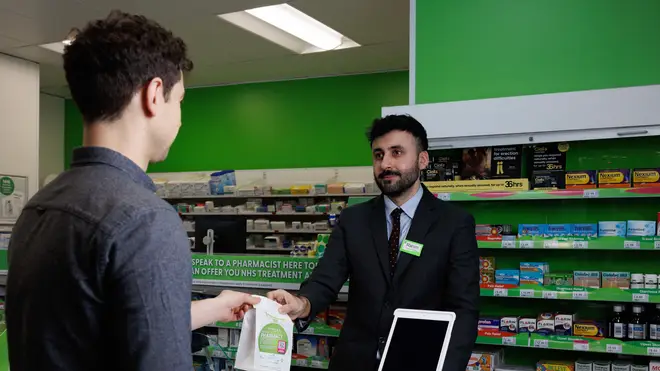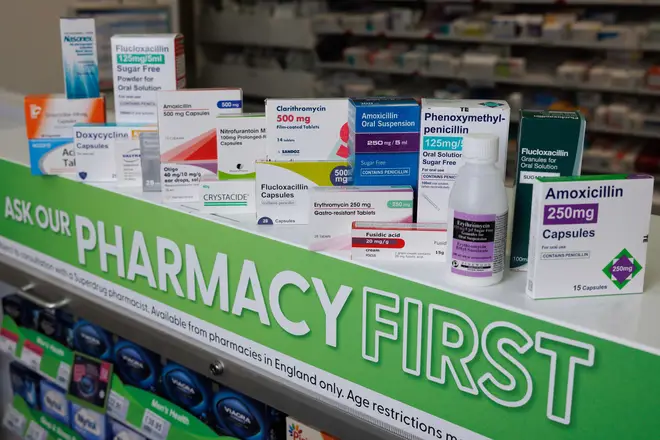On Air Now
Heart Breakfast with Jamie Theakston and Zoe Hardman 6:30am - 10am
31 January 2024, 13:03 | Updated: 20 February 2024, 11:13

What is Pharmacy First, what are the 7 conditions you should go to the pharmacy for and where is the scheme in the UK?
The Government and NHS launched Pharmacy First on Wednesday 31st January 2024, a new scheme put in place to help ease the pressure on GP surgeries across the UK.
Pharmacy First will allow pharmacists to help treat seven common conditions in their communities, which will free up appointments at general practices for more serious illness and conditions.
This scheme will replace the Community Pharmacist Consultation Service (CPCS), with over 10,000 pharmacies across the UK signing up to be part of Pharmacy First.
Here's everything you need to know about Pharmacy First, including what the scheme is, which illness pharmacists can treat and where to find your local branch.

Pharmacy First is a new NHS scheme put in place by the Government to help ease the pressure on GPs across the UK amid appointment difficulties.
The scheme will allow pharmacists to help treat seven common illnesses, saving the patient a trip to their GP and freeing up appointments for more serious conditions.
The PFS also comes with expansions to the pharmacy blood pressure checking and contraceptive services, which is predicted to save up to 10 million GP appointments each year and allow patients to "access quicker and more convenient care".
Pharmacy First will replace the Community Pharmacist Consultation Service (CPCS) and will consist of three elements:
Pharmacists will be able to offer advice to patients through this new scheme, and even supply NHS medicines where clinically appropriate for seven common illness.

The Pharmacy First scheme means people can now visit their pharmacist to treat the following seven conditions:
On the day Pharmacy First launched, over 10,000 pharmacies across the UK had signed up to be part of the scheme.
To find your local Pharmacy First service, you can visit the NHS service finder here.